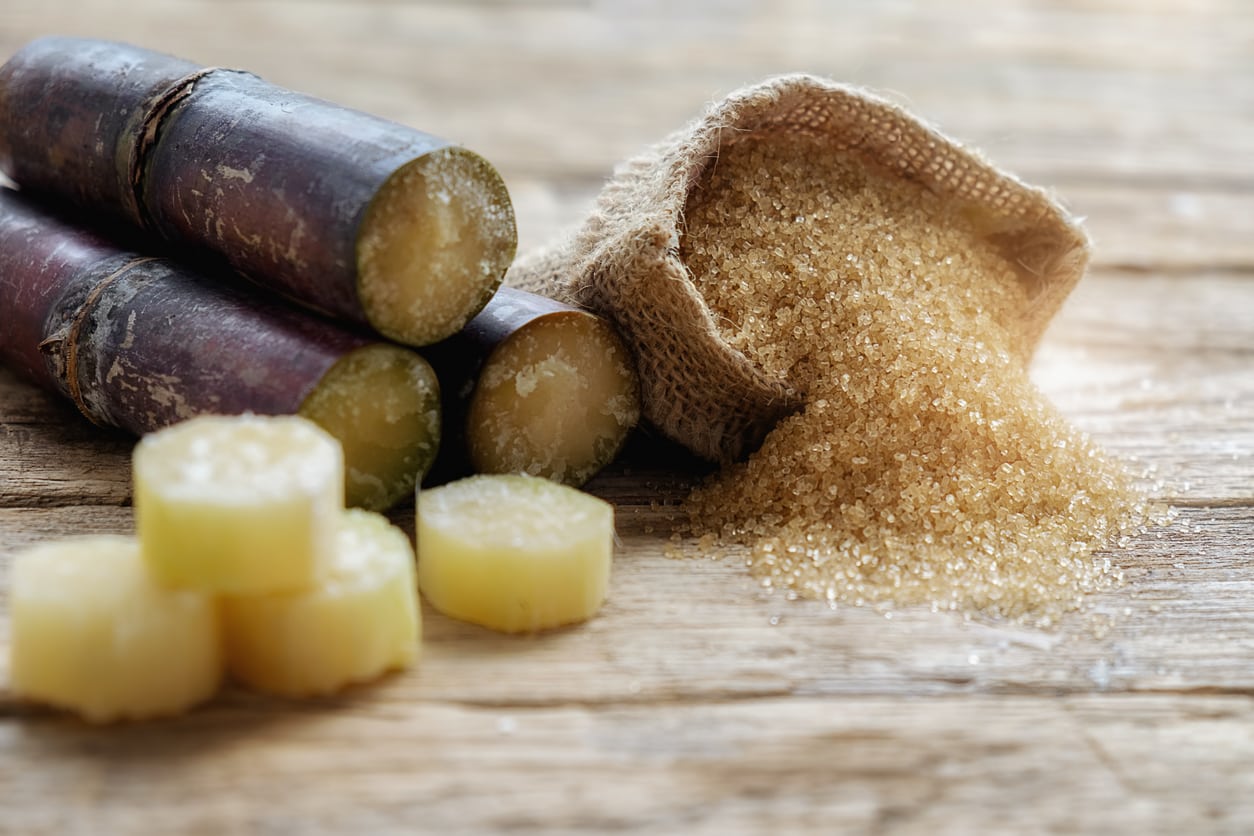The Rich History and Origins of Sugar and Cane Around the World
The Rich History and Origins of Sugar and Cane Around the World
Blog Article
Why Walking Cane Sugar Processing Chemicals Are Vital for Modern Sugar Refining
The role of walking cane sugar processing chemicals in modern sugar refining can not be overemphasized, as they are indispensable to boosting both the effectiveness of extraction and the overall quality of the final product. Representatives such as phosphoric acid and details flocculants are employed to eliminate contaminations, causing sugar that not only satisfies customer assumptions but likewise abides by market criteria. Nonetheless, the ramifications of these chemicals extend past quality, discussing market characteristics and environmental factors to consider. This increases essential inquiries regarding the sustainability of such practices and their effect on the future of sugar manufacturing.
Duty of Processing Chemicals
The effectiveness of walking stick sugar handling hinges considerably on the tactical application of processing chemicals. These chemicals play a pivotal duty in improving the effectiveness and top quality of sugar extraction and refining. From the initial stages of juice extraction to the final purification actions, handling chemicals assist in numerous vital operations.
In the removal stage, chemicals such as phosphoric acid and calcium hydroxide are used to enhance the information process, aiding to get rid of pollutants and put on hold solids from the cane juice. This not only enhances the yield but likewise ensures the clearness of the end product. In addition, agents like flocculants help in the fast settling of impurities, thereby streamlining the total process.
As the handling advances, chemicals are utilized in decolorization and crystallization stages. Turned on carbon and ion exchange materials serve to get rid of color and odor, guaranteeing that the polished sugar fulfills consumer quality standards. Ultimately, the duty of processing chemicals prolongs beyond functional performance; they considerably impact the sensory attributes of the last item, adding to market competition. Hence, the meticulous option and application of these chemicals are vital for accomplishing ideal results in walking cane sugar handling.
Secret Kinds Of Chemicals
Cane sugar handling depends on a variety of key chemicals that facilitate each phase of manufacturing. These chemicals play crucial functions in clarifying, lightening, and purifying the sugar removed from walking cane.
One main category of chemicals consists of flocculants, such as polyacrylamide, which aid in the clarification process by promoting the gathering and settling of pollutants. Furthermore, calcium hydroxide is typically employed to neutralize acidity and aid in the elimination of non-sugar components.
Bleaching representatives, such as turned on carbon and sulfur dioxide, are made use of to decolorize the syrup, causing a clearer last item. These chemicals aid get rid of color compounds that may impact the sugar's look and bankability.
Moreover, phosphoric acid works as a pH regulatory authority throughout the processing phases, making sure optimal conditions for the chemical activities associated with sugar removal and filtration.
Various other crucial agents include edta (ethylenediaminetetraacetic acid), which chelates metal ions that could militarize undesirable responses, and sodium hydroxide, which assists in pH control throughout the refining procedure. Jointly, these chemicals enhance effectiveness and guarantee a high-quality walking cane sugar item.
Benefits for Sugar Top Quality
Often overlooked, making use of specific processing chemicals significantly improves the general quality of cane sugar. These chemicals play a critical duty in refining procedures, guaranteeing that the last product meets stringent industry requirements for purity and preference.

Additionally, refining chemicals aid in achieving a consistent granulation and texture, which are vital for customer acceptance. By managing the formation procedure, these chemicals ensure that the sugar crystals form consistently, resulting in a much more enticing item that dissolves well in different applications.
Furthermore, the use of these chemicals can improve the life span of walking cane sugar by reducing wetness absorption and microbial development. On the whole, the critical application of handling chemicals is important for providing premium walking stick sugar that fulfills customer assumptions and industry needs.
Ecological Impact Factors To Consider

Furthermore, the energy-intensive nature of sugar refining, compounded by chemical use, often leads to boosted carbon exhausts. This adds to climate change and increases issues pertaining to the sustainability of existing refining methods. Additionally, the sourcing of these chemicals might involve practices that threaten biodiversity, such as monoculture farming, which minimizes the strength of farming environments.

To mitigate these effects, sugar refiners are significantly discovering sustainable alternatives and taking on finest techniques that lessen chemical usage. Implementing extensive environmental administration systems can aid ensure that the refining process straightens with ecological requirements and promotes biodiversity. Eventually, a balanced method that prioritizes both sugar quality and environmental stewardship is important for the long-lasting feasibility of the sugar industry.
Future Patterns in Refining
As the sugar market grapples with the environmental challenges connected with typical refining approaches, cutting-edge approaches are arising to improve both effectiveness and sustainability. One significant pattern is the adoption of eco-friendly chemistry principles, which focus on making use of non-toxic, biodegradable processing chemicals. This shift not just reduces environmental effect however additionally addresses customer demand for cleaner manufacturing approaches.
Another promising growth is the implementation of sophisticated filtration innovations, such as membrane layer splitting up and adsorption procedures. These strategies enhance the quality and top quality of the sugar while reducing the volume of wastewater produced throughout refining. Additionally, the integration of digital innovations, consisting of IoT and AI, is transforming operational effectiveness by allowing real-time tracking and predictive maintenance, hence minimizing source waste.
Moreover, making use of byproducts from sugar refining, such as bagasse and molasses, is obtaining grip. These products can be transformed into biofuels or value-added items, adding to a circular economic climate within the sector. Jointly, these fads indicate a shift in the direction of more sustainable methods that not only improve operational efficiency yet also align with global sustainability objectives, making sure the future practicality of sugar refining.
Conclusion
Walking cane sugar handling chemicals are crucial in modern sugar refining, significantly improving the effectiveness and top quality of sugar removal. The calculated use these i loved this chemicals not only improves the purity useful site and taste of the final product but likewise makes sure constant crystallization and appearance. As the sector significantly focuses on sustainability, the fostering of environmentally-friendly processing agents is likely to form future fads in refining, ultimately resulting in better products and extended service life for customers.

Inevitably, a well balanced technique that focuses on both sugar top quality and ecological stewardship is vital for the long-term stability of the sugar industry.
Walking cane sugar handling chemicals are essential in modern-day sugar refining, substantially boosting the effectiveness and high quality of sugar removal.
Report this page